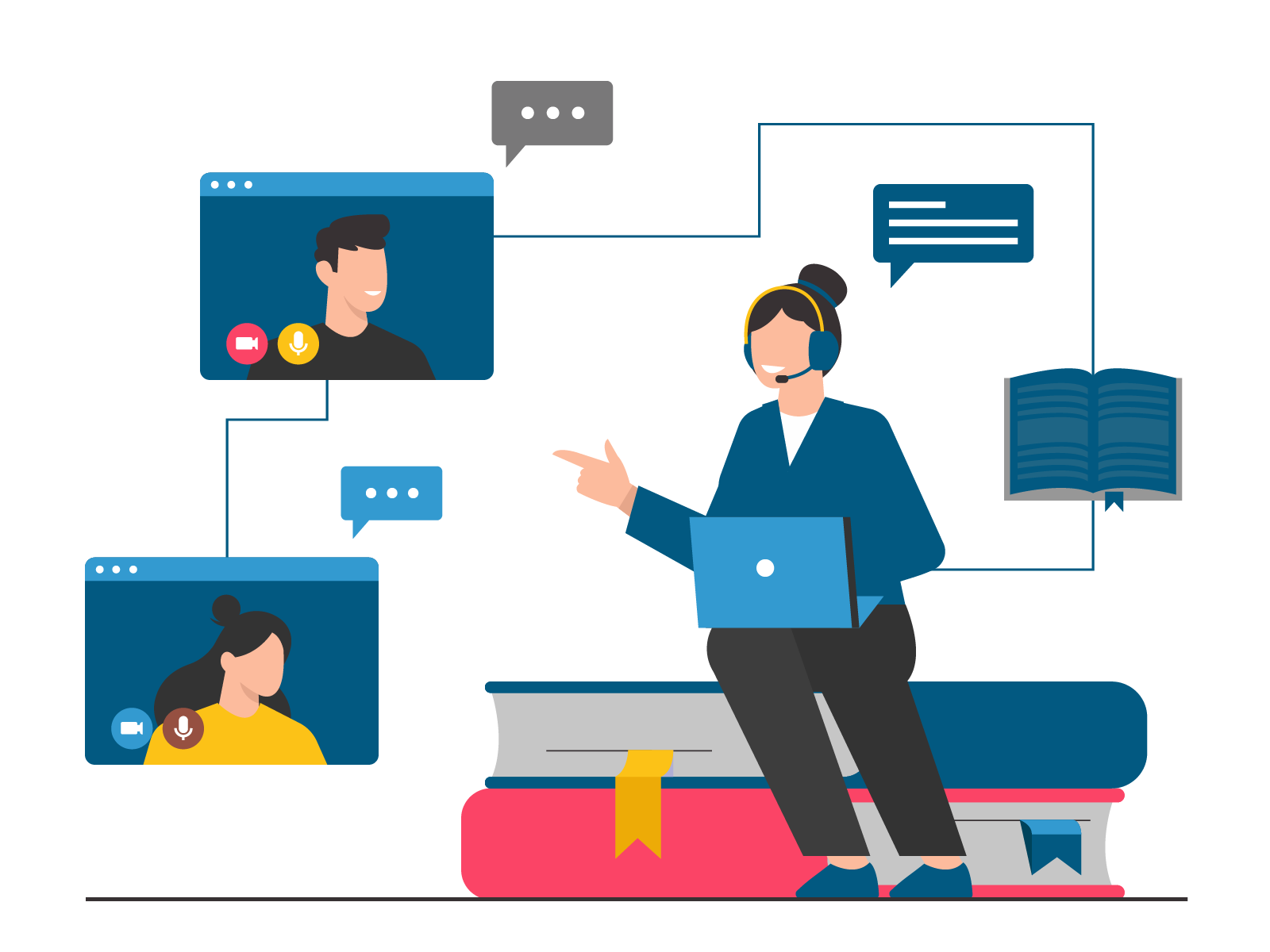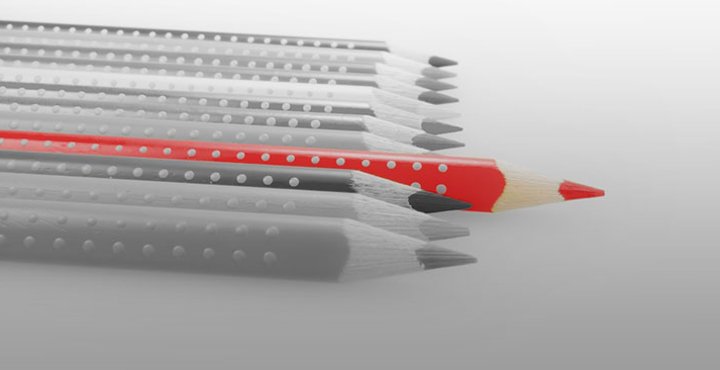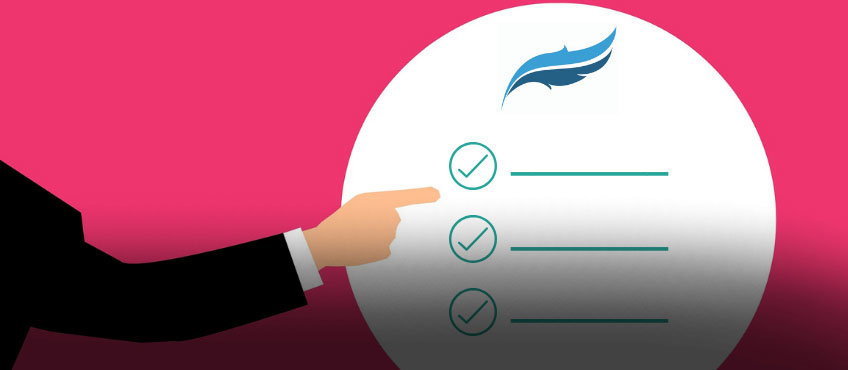Written by Scribendi
You've finished your research paper. Your data has been processed, your methods have been outlined, your arguments have been laid out, and potential counterarguments have been addressed. Now comes the part that most authors dislike: academic editing.
Choosing an academic editor or proofreader is a daunting task. It requires finding someone who has the skill to correct grammatical and stylistic errors in your paper. That person should also be familiar enough with academic paper editing to employ its conventions and rules.
So, how do you find the right academic editor or proofreader for you?
What's the Difference between Academic Paper Editing and Academic Proofreading Services?
People often confuse academic paper editing and academic proofreading services because they both involve text correction. However, they are distinctly different. You'll want an academic editor when you're ready to refine your writing. However, an academic proofreading service is best when you're confident that your writing is in good shape.
When it comes to choosing an academic editor or proofreader, it helps to know the difference between the two.
Read More: Editing or Proofreading?
With academic editing, editors look for issues at the core of the writing. They look at the way sentences are constructed, as well as the flow and overall clarity of the work. They also check for readability, clarity, and tone, in addition to grammar and spelling. When you have a rough draft that needs substantial revisions, which is usually when you're at the start of your writing process, an editor is your best bet.
With academic proofreading services, a proofreader looks for incorrectly spelled words, missed punctuation, or inconsistencies in the text. Usually, you'll need a proofreader after an editor has already reviewed your work and you just need a final review for grammar or punctuation errors before you submit it.
Most documents require both editing and proofreading, in that order. An editor can help you improve your first draft, and a proofreader can help you perfect your final draft.
Make Every Word Count with Professional Proofreading
Try Our Academic Proofreading Service, or Get a Free Sample
How Do I Edit or Proofread My Own Academic Paper?
To edit your own academic paper, it can help to switch your perspective, to edit your paper in sections, to read your paper multiple times, and/or to try creating a reverse outline. We cover these methods in this blog post so you can edit your paper objectively.
The hardest part of being your own academic editor and proofreader is accepting that almost anything in your paper can be trimmed away. Many researchers spend months (if not years) polishing their papers.
It can be discouraging to look at a point that took countless hours to develop and strengthen and realize that, ultimately, it does not provide much support for your thesis. If you want to give proofreading your own paper a try, though, there are several steps you can take.
Try Switching Up Your Perspective
Sometimes when you've read something long enough, you're not able to look at it subjectively. You might not be able to easily tell what's missing, or your eyes might gloss over glaring typos.
In this case, try switching up your perspective.
Print out your academic paper and hold it in your hands instead of looking at it on a screen. Printing out your work offers an entirely new way of reading your document. It's a new experience for your eyes, and it'll be harder to make assumptions about things.
Alternatively, you can alter the font style or size of the text in your paper. You'd be surprised how much you can alter your reading experience simply by changing the font. You'll read sentences in a new way, and you might even find new things that don't make sense!
Changing an aspect of your document will help you see it from a new perspective. It will also prevent you from skimming over any words or sentences that might need your attention.
Edit or Proofread Your Academic Paper in Sections
If you start feeling fatigued, frustrated, angry, or anything but calm and self-assured, put your paper down and walk away from it for a while. It's best to take your time and do your academic paper editing with confidence, section by section. This approach is far more effective than quickly pushing through and missing obvious errors.
You can experiment with pretending that each section belongs only to itself, and that there's no other content. When you view your text this way, it's a different experience altogether. You can better digest the paper by taking it piece by piece versus trying to stuff the entire thing down in one read.
Plus, it allows you to slow down. And when you slow down during your reading, you'll catch more errors.
Read More: How to Edit and Proofread Your Own Writing
Read Your Academic Paper Multiple Times
Most academic editors will read through a document at least twice to catch all the mistakes and typos within it. The University of Arkansas Little Rock recommends making several passes over your paper (one pass for spelling, one for punctuation, and so on) if you plan to do your own academic editing.
You'd be surprised how easy it is to catch errors when you read something more than once. In fact, reading content multiple times is what helps editors and proofreaders find the most common mistakes. It's not a superpower; it's just simple repetition!
Try Creating a Reverse Outline for Your Academic Paper
A reverse outline can help you see your ideas clearly. Start at the end of your academic paper and work backward, identifying every point made in each paragraph. Rank your points by importance, then reshuffle your paragraphs so that the most important points are made first.
Don't be surprised if you find you have to rewrite your thesis or even your entire paper after doing this.

How Do I Ask Someone to Help Me Edit or Proofread My Academic Paper?
When you need help editing or proofreading an academic paper, it helps to find someone who understands your field of study. That being said, you should also keep in mind the fact that your colleagues are busy too. It is important to be polite if they say no or to set a deadline and avoid criticizing their work if they say yes.
If you're unable to hire an academic paper editing or academic proofreading service, asking someone you know to help you is a great option. There's nothing better than getting a second pair of eyes on something you've looked at a million times.
However, there are a few things to consider before asking a friend, teacher, or classmate.
Find Someone Who Understands Your Field of Study
If you plan to find an academic editor among your classmates, teachers, or fellow academics, focus on those who share or at least understand your field of study. Ask your academic advisor or check with your student services department to see what sort of academic editing or proofreading resources are available to you.
Most institutions offer groups, guides, programs, and other helpful tools to support those in need of academic paper editing or proofreading assistance. You don't even need to be affiliated with certain schools to benefit from their guidance!
Keep In Mind That Others Are Busy Too
Bear in mind, though, that just as you have been working on your paper, your classmates and supervisors have been similarly busy.
Your professors have to lead classes, hold workshops, attend meetings, and supervise student work—all while staying on top of their own research responsibilities.
While asking for a fresh perspective and a friendly edit may sound like a simple request, asking the wrong way can bruise feelings and strain relationships.
Be Polite and Respectful If They Say No
When asking for assistance, remember to be polite and respectful, and respond with grace if the answer is "no." Here are a few examples:
- Be polite: Use "please" in your query. It sounds simple, but it's easy to forget sometimes! And "please" goes a long way. You can say something like, "Would you please take a few minutes to review what I've written and let me know if I'm heading in the right direction?"
- Be respectful: As a show of respect, you can say something like, "I realize you're busy, but would you mind doing me a favor?"
- Be graceful: Even if the answer is "no," you can still show some grace by saying, "Thanks, anyway. Do you happen to know anyone else who might be able to help?"
Set a Deadline
If you get a "yes," express your gratitude and agree on a time for you to collect your edited paper. Don't say "do it when you can," even if you have plenty of time before you need to turn your paper in.
You don't want to find yourself in a situation where you're pressuring someone to read your paper because it's nearing the deadline!
Avoid Criticizing
When you get your paper back, be sure not to criticize your friend or colleague if you don't think they did a fantastic job.
Instead, focus on being grateful that they took the time to help you and did the best they could.

How Much Do Academic Paper Editing and Academic Proofreading Services Cost?
Academic paper editing and academic proofreading service costs vary depending on your turnaround time, the type of document you have, and the type of edit you need. Academic editing and proofreading are not the same, and different academic paper editing and academic proofreading services offer different rates.
When pricing out the cost of an academic paper editing or academic proofreading service, consider the following:
Timing
Timing is a big factor to consider. Not only does timing affect the price of having your paper edited, but it also plays a big role in ensuring that you edit and finish your paper on time.
It's good practice to submit your paper to a proofreader or editor well in advance of the due date so you're not paying extra for a rush job.
To give yourself plenty of time to make revisions and corrections to your document after you've received it back, set a deadline to have an editor review your paper at least 48 hours before it's due.
Type of Academic Paper Editing or Academic Proofreading Service
Since academic paper editing and academic proofreading services aren't the same, the pricing between the two will vary. Academic paper editing requires a more in-depth review of the work, while academic proofreading is more superficial, checking for grammar, spelling, and punctuation. For this reason, some academic paper editing services will charge more for an edit than a proofread.
When you're pricing out academic paper editing or academic proofreading services, keep an eye out for tiered or à-la-carte services. You can expect to pay extra for higher tiers or additional perks if you want a full edit plus constructive feedback. So, the full cost of academic paper editing and academic proofreading services will depend on the type of academic paper editing or academic proofreading service you're looking for.
Academic Editing Speed
In order to gauge how long it will take to get your academic paper edited or proofread, keep in mind the industry standard for academic editing: 1,000 words per hour. This means a 30,000-word research paper should take roughly 30 hours to edit completely.
Break that up into workdays of ten hours each (because editors, like everyone else, need to eat and sleep), and that makes three days of work.
So, once you've figured out your word count and compared it to the 1000-words-per-hour industry standard, you should have a good idea of how quickly you can expect someone to return your paper.
Splitting the Work
If you need your work done quickly, some academic paper editing or academic proofreading services do promise turnaround times of 24 hours or less. But another option to have your academic work edited or proofread faster is to have editors split the work. This means they'll break the document into pieces and allow several editors to work on your document at once.
While this will get the job done faster, it may also cause contradictory editorial advice or certain inconsistencies to appear when you put the pieces back together. So be sure to keep that in mind!
Academic Paper Editing and Academic Proofreading Service Reputation
You'll want to be wary of academic paper editing or academic proofreading services that have a poor reputation.
Read More: 12 Best Editing and Proofreading Services
In addition, avoid companies that rely heavily (or completely!) on computer programs to do the work. Academic editing programs are not quite sophisticated enough yet to read a document and comprehend the context well enough to spot logical flaws, poor citations, unsubstantiated assertions, or pointless deviations.
Read More: 10 Best Human and AI Grammar Checkers
Lastly, businesses that do not address your complaints or offer to make things right if you're unhappy with their academic paper editing or academic proofreading service do not deserve to handle your paper.
Longevity and Proof of Quality
Your best bet for an academic paper editing or academic proofreading service is a business that has been around for a while.
Work with an academic paper editing service that has the following qualities:
- Human editors with experience and education
- A proven track record of quality
- Consistent pricing based on the academic paper editing or academic proofreading service you need
- Ability to provide constructive feedback as well as thorough academic editing work
- Excellent support from customer service
Conclusion
No matter whom you choose as your academic editor or proofreader, remember that academic editing is always beneficial and all writers consider it a necessary step of their writing journey.
Allow your paper to be edited and proofread to ensure that you have crafted a concise, thoughtful, and solid argument and have contributed to the wealth of knowledge available to the world.
Happy writing!
Make Every Word Count with Professional Academic Proofreading
Try Our Academic Proofreading Service, or Get a Free Sample
About the Author

Scribendi's in-house editors work with writers from all over the globe to perfect their writing. They know that no piece of writing is complete without a professional edit, and they love to see a good piece of writing transformed into a great one. Scribendi's in-house editors are unrivaled in both experience and education, having collectively edited millions of words and obtained numerous degrees. They love consuming caffeinated beverages, reading books of various genres, and relaxing in quiet, dimly lit spaces.









